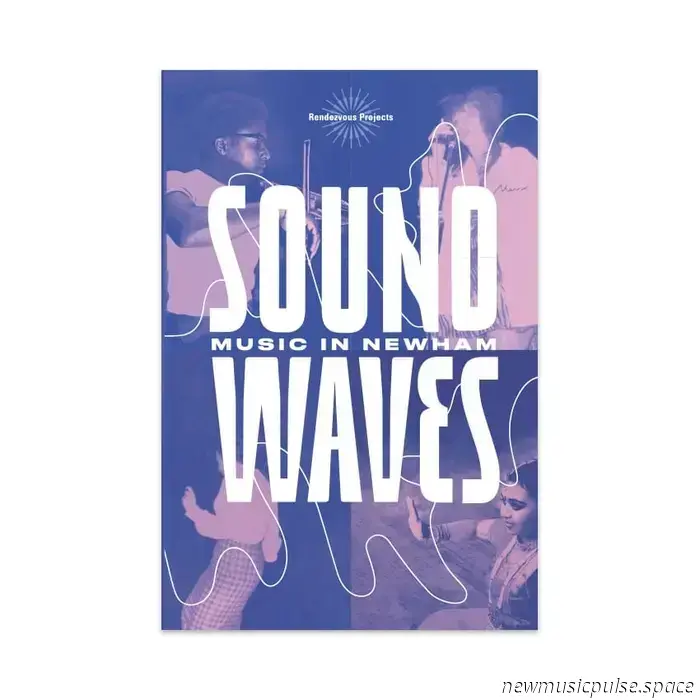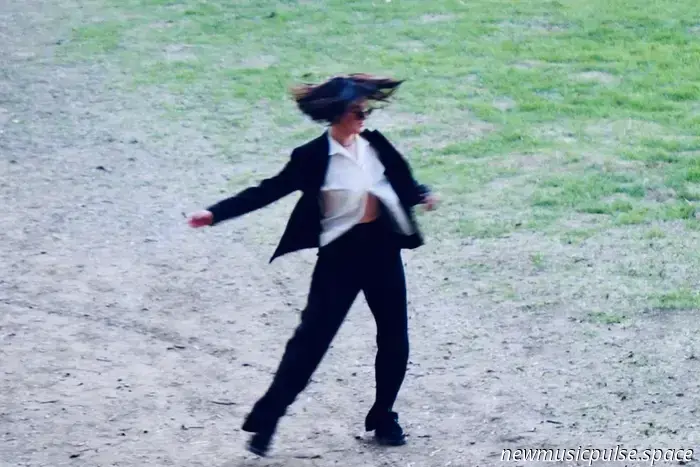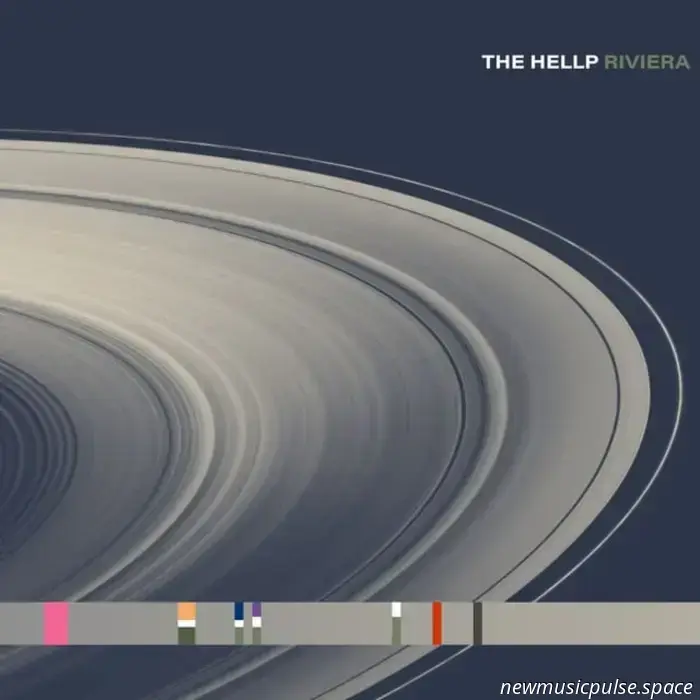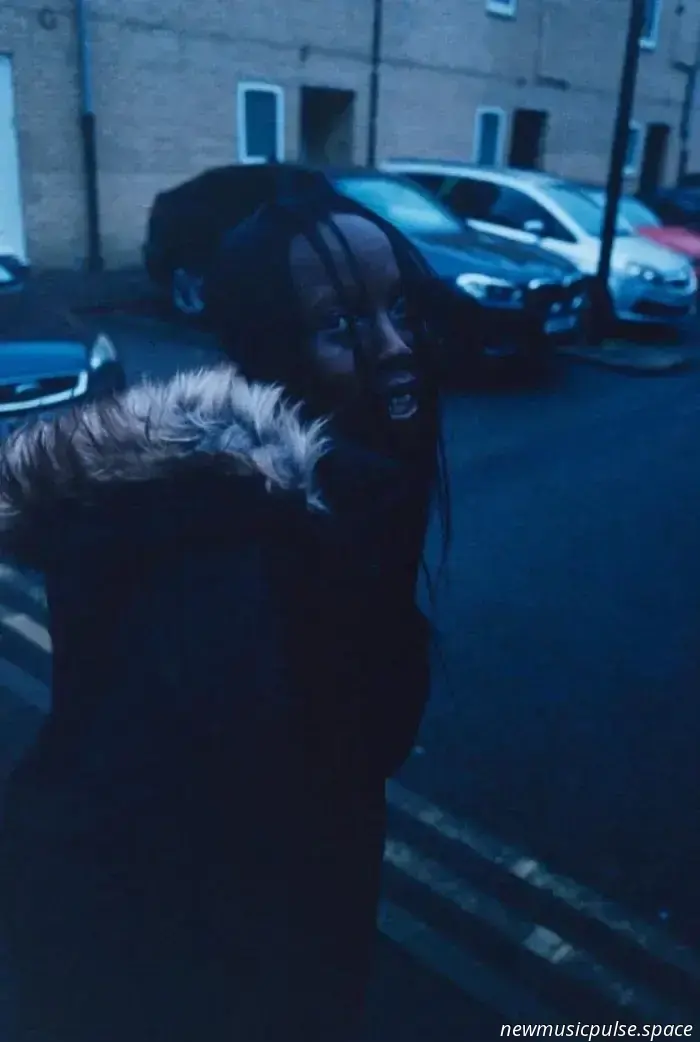
Newham frequently emerges in discussions of London’s musical history. It has served as a melting pot for various generations, spanning an array of genres – from Kano's street raps to the New Wave of British Heavy Metal; from the dynamic energy of grime's pirate radio to the activities of Bengali community groups.
The new initiative, Sound Waves: Music In Newham, seeks to highlight this. Developed by Rendezvous Projects and supported by the National Lottery Heritage Fund, it offers a comprehensive exploration of Newham's musical legacy, unveiling some lesser-known tales along the way.
An interactive website has been launched, accompanied by a series of exhibitions at Plaistow libraries that feature listening posts, community photo archives, and interactive maps, along with talks, guided walks, and community events.
Sound Waves tells stories of creativity, resilience, and community, and is complemented by a limited edition book – introduced by journalist, archivist, and broadcaster Emma Warren – which includes six chapters that delve into 60 years of Newham's musical history, enriched with rare photographs and personal stories.
Clash interviewed Emma Warren and Katherine Green – social documentary photographer and co-director of Rendezvous Projects CIC – about the project.
—
What initially piqued your interest in the Sound Waves: Music In Newham project?
Emma Warren: I have admired Rendezvous Projects since they released Sweet Harmony, which chronicled Waltham Forest’s pirate radio stations. It is a booklet filled with quotes from those who were there, adorned with a beautifully crafted map featuring QR codes that lead directly to show recordings. It’s one of the resources I always take with me when I conduct Document Your Culture workshops. Therefore, when they approached me about this project and requested my introduction, I immediately agreed.
What personal connections do you have with the area? Are there any specific music or nightlife memories that stand out?
Emma Warren: My connection lies more with the music that originated from Newham than with the area itself. Tracks like ‘We Are I.E’ and ‘Six Million Ways to Die’ are among the most iconic and impactful on the dancefloor. I really enjoy FOLD – it’s fantastic to have a genuine venue in the lineage of London’s authentic venues.
—
It is crucial to record cultural history before it fades away – did you encounter any specific challenges while writing this book or contributing to the project?
Emma Warren: There’s always a risk that projects like this might be extractive. Personal memories and individual archives are both precious and valuable. While documenting cultural history is important, it’s even more crucial that it’s a collaborative effort. The practice of documenting culture has not always been positive and is often led by those with more power than the individuals whose stories are being shared. This presents an ongoing challenge that must be addressed. I hold a great deal of respect for Desiree Reynolds and her initiatives in Sheffield regarding Dig Where You Stand, which they define as an archival justice movement. In writing the introduction, I aimed to articulate the significance of these stories and their relevance today.
—
The project goes beyond commercially successful genres, striving for a comprehensive overview. A common thread is the role of music in both creating and mirroring communal experiences. Why do you think this connection is particularly strong in Newham?
Katherine Green: The identity of Newham has consistently been shaped by movement and migration. As a working-class area near the docks, it attracted people from all over the UK and beyond who came to work in East London's factories and industries. These shifting populations introduced diverse musical traditions that continually intersected, blended, and evolved.
Music emerged as a means of expressing identity and belonging, especially for second-generation migrants navigating between cultures. It also provided a venue for communities to unite and gain strength amid social and economic challenges. When material possessions are scarce, creativity and collaboration become mechanisms for action. This has been Newham's narrative: people assembling a cultural landscape from the ground up, supporting each other, and transforming collective struggles into shared celebrations.
Were you surprised by any particular scenes or sounds?
Katherine Green: Newham is full of surprises. One of my favorite discoveries was the story of the Ruskin Arms, a legendary rock pub known for hosting bands like Iron Maiden and Status Quo in the 1970s and 80s. In the late 1980s, Jack Singh Sandhu took over, offering the upstairs space to a friend who established a community radio station for the South Asian community. Downstairs, there was a hardcore rock crowd, while in the back bar, Punjabi musicians played, and upstairs, DJs broadcasted to Newham’s Asian populace – two entirely different scenes coexisting harmoniously under one roof. Although it wasn’t entirely unexpected, I was taken aback that the story isn’t more widely recognized.
The depth of Newham's connection to the Asian Underground that emerged in the 90s was also striking. Artists like Asian Dub Foundation – whose ‘New Way, New Life’ video was


Izzy Outerspace sparks an intense and emotionally charged tempest with "Closer," the dramatic lead single from her forthcoming album ‘A Romance Truly Tried.’ The track combines heartfelt confessions with a powerful alt-rock explosion that resonates deeply.

Singer/songwriter Josaleigh Pollett, based in Salt Lake City, shares insights about their haunting and emotional new single “Radio Player,” which is inspired by Poltergeist.

Noah Dillon and Chandler Lucy are among the pioneers of a sound and vibe that has risen to the forefront of the underground scene. Dillon remarked

Following closely behind Sugar's unexpected reunion is this Record Store Day collectible - a four-disc box set featuring the 12” singles from the 1992 release.

Seyi Vibez is currently experiencing a significant transformation. In recent years, he has evolved from a local interest to becoming one of the most impactful voices influencing how

Experimental artist Klein has revealed a deluxe edition of her newest mixtape, ‘sleep with a cane,’ set to be launched exclusively on Bandcamp and as
Newham frequently appears within London's musical history. It has served as a melting pot for various generations, engaging with a wide array of genres -